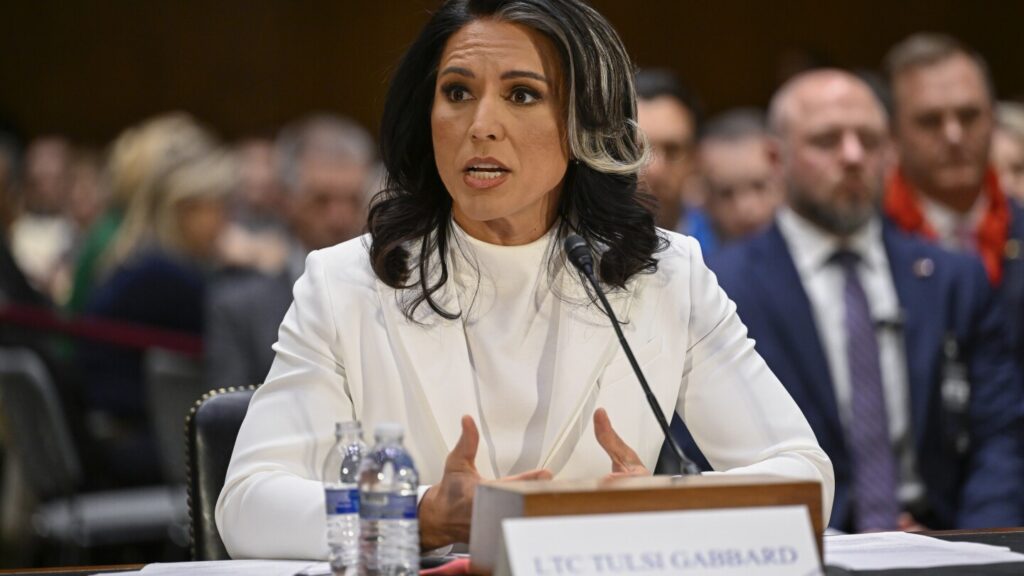Tulsi Gabbard’s nomination for President Trump’s director of national intelligence faced scrutiny due to her past statements sympathetic to Russia and a meeting with Syria’s former leader. Despite bipartisan concerns, the Senate Intelligence Committee advanced her nomination with a 9-8 vote, moving it to the full Senate for consideration. Gabbard, a former Democratic congresswoman and presidential candidate, lacks formal intelligence experience but has military background in the National Guard.
During her confirmation hearing, Gabbard faced tough questions about her support for Edward Snowden and her meeting with Bashar Assad. Her past statements on Snowden and Assad’s regime drew criticism, with Gabbard defending her actions by emphasizing her focus on human rights issues. Additionally, her alignment with Russian propaganda regarding Ukraine and opposition to key U.S. surveillance programs raised further concerns.
Republican support for Gabbard solidified following a pressure campaign by Trump allies, including Elon Musk, despite initial hesitation from some GOP members. The confirmation process highlighted the partisan divide, with Democrats opposing Gabbard’s nomination. Gabbard’s interactions with controversial figures and positions on national security issues have sparked intense debate within the Senate.
In a strategic move, Senator Todd Young, who initially raised doubts about Gabbard, announced his support after seeking assurances on national security matters. The evolving dynamics surrounding Gabbard’s nomination underscore the complex intersection of politics, national security, and individual beliefs within the Senate’s confirmation process.

